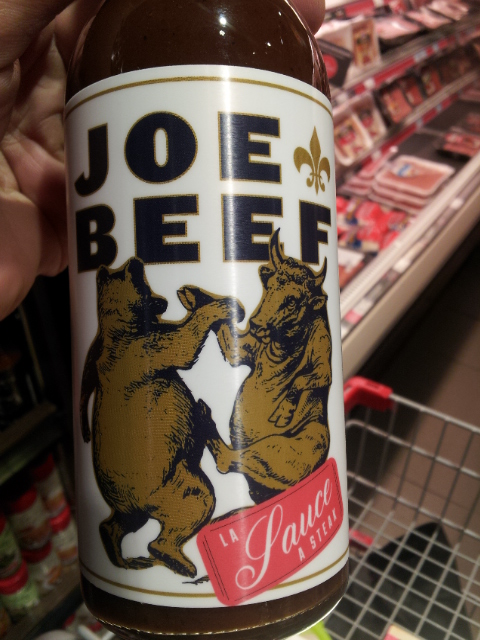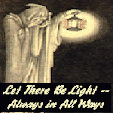Allegedly an atheist, Joe Beef had the following manifesto printed on handbills and advertisements:
He cares not for Pope, Priest, Parson, or King William of the Boyne; all Joe wants is the Coin. He trusts in God in summer time to keep him from all harm; when he sees the first frost and snow poor old Joe trusts to the Almighty Dollar and good old maple wood to keep his belly warm, for Churches, Chapels, Ranters, Preachers, Beechers and such stuff Montreal has already got enough.
There is little left of what local parish priests (les bons vieux curés d'antan) might have thought out loud of Joe Beef and his manifesto - let alone his canteen... But the already world-famous by then
New York Times was quite vociferous about it all and deemed itself
not impressed at all by the good that Joe did,
calling Joe Beef's Canteen "a den of filth" (which is quite something coming from some chaps hailing from
New Amsterdam!) and adding insult to injury by adding further commentary such as this:
The proprietor is evidently an educated man, and speaks and writes well. But he is a little nearer a devil and his place near what the revised version calls Hades than anything I ever saw.
That he would be called a devil by haughty brainerds from NYC only adds credence to our eyes here that this man was, amazingly, ironically and maybe even paradoxically enough, most likely pleasing God with his actions, if not his words. The Times gave him the credit of education - had they done their research well, they would have found out that he actually lacked
formal education but still considered himself an intellectual and was an avid reader as he engaged in heated debates on the topics of the day and was a champion for the rights of the common man. It is the latter quality that stands out as legend has that, at first, he entertained the crowds with poetry and humorous stories which lampooned the figures of authority in the workingman's life, such as the employer, the landlord, or the local church minister. Then he began to use his gifts in a more shall we say luminous way as he acted as an advocate for the working class population of Griffintown and played an important role in the Lachine Canal workers strike of 1877. Through it all, he proved an invaluable ally for the strikers as he provided them with 3,000 loaves of bread and 500 gallons of stew, and paying the travel expenses of their delegation to Ottawa - all this on top of his inspirational gift for words. For, as the strikers set off to the nation's capital to plead their desperate cause, Joe Beef addressed them and a crowd of 2,000 in front of his tavern with a rousing speech" and it was all "delivered in rhymed endings which was heartily applauded." He repeated this feat as he also assisted strikers at the east-end Hudon textile factory in 1882.
Joe Beef's Canteen was the unquestionable focal point of social life in the Griffintown of the time; further more, his canteen provided early social services such as housing, food, and casual employment for the poor and downtrodden. As such a provider, Joe was doing as much as Marguerite Bourgeois did in the very same area, in a totally different style though...!
The man's true kindness of heart would have been amply displayed by his love of animals - though it might be simply dismissed as eccentricity and little else. For Joe Beef was no Doctor Doolittle - he was simply known for keeping a menagerie of animals in his tavern, including four black bears, ten monkeys, three wild cats, a porcupine and an alligator. The SPCA and IFAW might have objected to the way that the bears were usually kept - in the tavern's cellar and viewed by customers through a trap door in the barroom floor.
Joe would sometimes put the bear to some questionable use too: any one of them could be used as impromptu and de facto bouncer, in fact, on any given day: he would bring a bear up from the basement to restore order in his tavern whenever necessary! He would also use the bears for entertainment purposes: live wrestling, as they'd fight with his dogs or simply play a game of billiards with the proprietor.
One of the bears, dubbed Tom, had become quite the heavy drinker under Joe Beef's tutelage and had a reported daily consumption of twenty pints of beer. Tom The Bear would sit on his hindquarters and hold a glass between his paws without spilling a drop - or so reports patrons of the bar at the time and so reports Wikipedia nowadays! Hence, Joe Beef could have worked for the circus too, if he had so desired...
The animals loved him fine too, thus any notion that they might have been mistreated has to be dismissed - however accidents still happened... On one occasion, McKiernan was mauled by a buffalo on exhibit in his tavern and was sent to hospital for a number of days. Another time, a Deputy Clerk of the Peace was inspecting the tavern in order to renew the license and was bitten by one of McKiernan's dogs. Knowing how nice "peace officials" can get to be in the venerable old towne of Montréal, I can hardly criticize the dog for that faux paw... er, pas. But that is another story...
And so Joe Beef's tavern was the nevralgico point of all that was (or could possibly be) happening in Old Montréal from its inception in 1870 until the owner's death from a heart attack in 1889, again, at the age of 54.
Truth be told,
Joe Beef is honoured and remembered in his native town in a myriad of ways - there is a restaurant bearing (no pun intended) his name and several other establishments make mention of him on what is now dubbed an
Heritage Trail.
His funeral was on this date in 1889 - an even colder January the 18th than the one we've just seen. His charity is still sorely missed, so many decades after his departure - because it is not the likes of PKP or any FTQ leader that will replace a man like Joe Beef.
We remember you... Charles
+++














